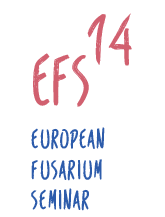
EFS14 - EUROPEAN FUSARIUM SEMINAR
APR. 8 – 11, 2018
TULLN, AUSTRIA

EFS14 - EUROPEAN FUSARIUM SEMINAR
APR. 8 – 11, 2018
TULLN, AUSTRIA
Update March 7., 2017: Speaker information updated.
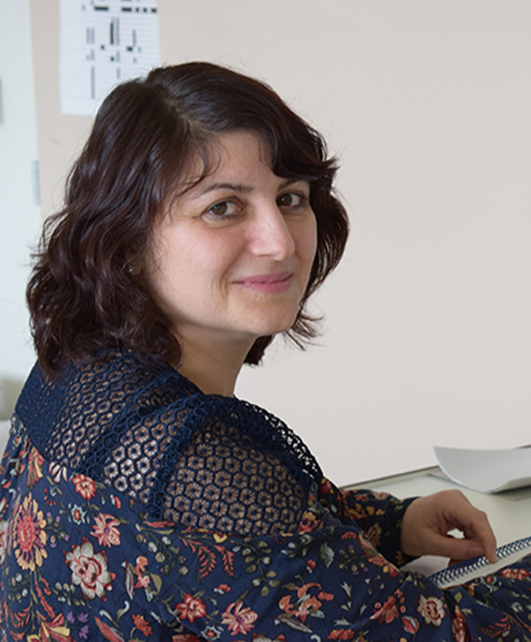
Vessela Atanasova-Penichon is a research engineer at the French National Institute for Agricultural Research, Mycology and Food Safety unit in Bordeaux. Since 2005, her investigation focuses on the biochemical approaches of mechanisms leading to toxin biosynthesis by Fusarium spp. and the regulation of this biosynthesis under biotic and abiotic stresses. Currently, her research is centered on the comprehension of plant resistance mechanisms to the Fusarium disease and mycotoxin accumulation, especially, biochemical resistance related to the endogenous metabolites of cereals, using targeted and non-targeted approaches. She also works on the development of biocontrol strategies in order to fight Fusarium. Complementary functional approaches including those of reverse and quantitative genetics are also conducted in her team to explain toxin biosynthesis and resistance mechanisms.
Vessela Atanasova-Penichon holds a PhD in Food Science from the National Higher Agronomic Scholl of Montpellier, France. Before joining Mycology and Food Safety research unit, she worked as a postdoc at the Sciences for Enology team of the French National Institute for Agricultural Research in Montpellier, on the subject of the valorization of wine industry by-products by developing new strategies for production of high added-value molecules. Vessela Atanasova is an expert for the French Association for Standardization (AFNOR), biotoxin group. Since 2012, she is an occasional lecturer for the University of Tours, France.
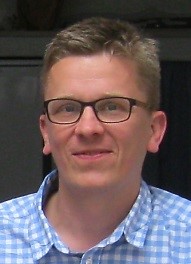
Kris Audenaert is Professor at the Faculty of Bioscience Engineering at Ghent University, Belgium. He is head of the Laboratory of Applied Mycology and Phenomics. As a molecular plant pathologist he is particularly interested in the physiological aspects of secondary metabolite production by plant pathogenic fungi during the interaction with their host plants. His current research focuses on biogenic volatile organic compounds such as green leaf volatiles to prime plants for enhanced defense against toxigenic plant pathogens. In addition, his research group explores the potential of fungal plant endophytes and their metabolites as biocontrol agents.
The research group has recently introduced “Phenomics” in their research. Phenomics uses a combination of RGB, chlorophyll fluorescence, anthocyanin, NIR and GFP/RFP imaging, to visualize the impact of plant pathogens on plants and compute scientifically relevant measures from these images, thus reaching beyond the mere visualization of phenomena.
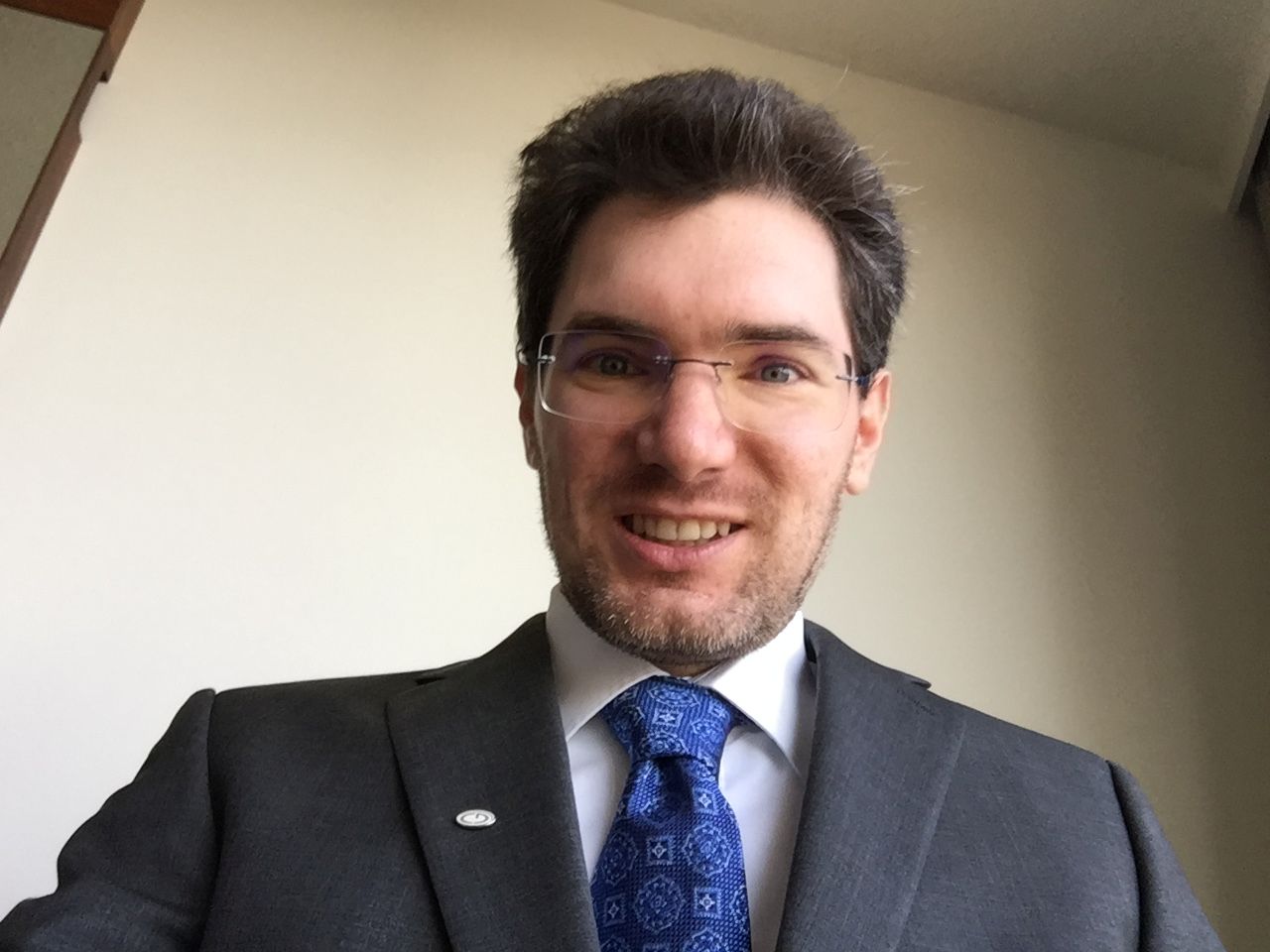
Franz Berthiller is Associate Professor at the University of Natural Resources and Life Sciences, Vienna (BOKU). He studied chemistry at the University of Vienna and the Vienna University of Technology. In 2006 he received the Brigitte-Gedek-Award from the German Society of Mycotoxin Research for his PhD thesis on masked mycotoxins. Franz continued his research in the lab of Prof. Rudi Krska at the IFA-Tulln, as well as some months abroad at the Danish Technical University and the Food Research Division of Health Canada in Ottawa. He is an expert on liquid chromatography coupled to mass spectrometry and his main research interested are the detection of novel fungal metabolites as well as the determination of mycotoxins and their metabolites. He headed the Christian Doppler Laboratory for Mycotoxin Metabolism from 2011-2017 and researched on the metabolism of mycotoxins in plants, microbes and animals. In 2014, he received the Fritz-Feigl-Award from the Austrian Society of Analytical Chemistry honouring his scientific development. This year, Franz was appointed editor-in-chief of the World Mycotoxin Journal. His scientific output includes more than 140 international peer-reviewed publications, which were cited about 5000 times ever since.

Siska Croubels is full professor and head of the Department of Pharmacology, Toxicology and Biochemistry at the Faculty of Veterinary Medicine of Ghent University.
Her research in the field of veterinary toxicology focuses on the toxicokinetics and toxicokinetic modeling of mycotoxins, on the interactions between mycotoxins and pathogens in several animal species, and on the development of in vitro and in vivo models for efficacy and safety testing of mycotoxin detoxifiers. Her research group is member of the MYTOX and MYTOX-SOUTH association research platforms (www.mytox.be; www.mytoxsouth.org), dealing with the effects of mycotoxins on human and animal health in the North and South.
Her research in veterinary pharmacology focuses on pharmacokinetics, pharmacodynamics, PK/PD modeling and residues of veterinary drugs in several animal species, and on the development of a juvenile animal piglet model for paediatric preclinical drug research (www.safepedrug.eu).
Prof. Siska Croubels is associate member of the European College of Veterinary Pharmacology and Toxicology (ECVPT), and external expert for the Federal Agency for the Safety of the Food Chain and Belgian Superior Health Council. She is also member of the Ghent University Research Council, Industrial Research Fund and of several scientific committees of international symposia, such as the International Symposium for Hormone and Veterinary Drug Residue Analysis (VDRA), European Association for Veterinary Pharmacology and Toxicology (EAVPT) and Antimicrobial Agents in Veterinary Medicine (AAVM) conferences.
Prof. Siska Croubels is author and co-author of more than 220 international peer-reviewed publications and she was promoter of 19 doctoral theses in the field of veterinary pharmacology and toxicology.
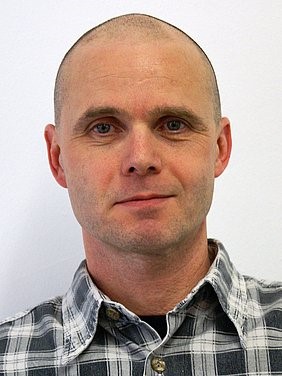
Sven Dänicke is head of the Institute of Animal Nutrition, situated in Braunschweig and one of the institutes of the German Federal Research Institute of Animal health, the Friedrich-Loeffler-Institute. Furthermore, he is lecturer for feed safety at the Agricultural Faculty of the Martin-Luther-University Halle-Wittenberg in Germany.
He studied Animal Production, Nutrition and Veterinary Medicine at the Universities of Leipzig, Halle-Wittenberg and Hannover in Germany and obtained the degrees Dr. agr. habil. and Dr. med. vet.
Currently, he is member of the Society of Nutrition Physiology, German Society of Mycotoxin Research, and the World's Poultry Science Association. Also, he is editorial board member of the journals Archives of Animal Nutrition, Agriculture and Forestry Research, Mycotoxin Research, European Poultry Science, Archives of Animal Breeding and Topical Collection Editor of Toxins (Fusarium toxins). His major research interests are animal nutrition, nutritional physiology, immuno-nutrition, and mycotoxins.
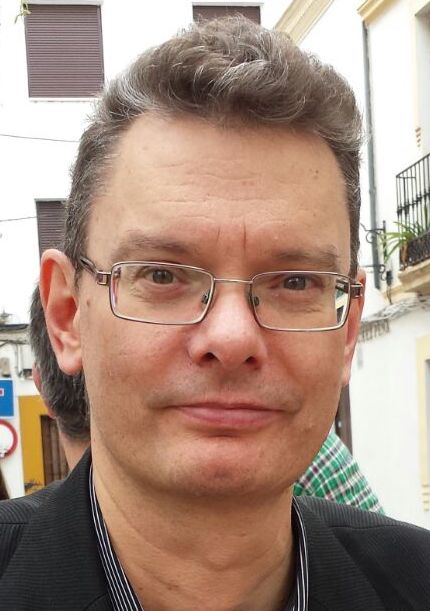
Antonio Di Pietro is Professor of Genetics at the University of Córdoba. He received a M.Sc. and Ph.D. degree in Biology from University of Basel and was a Swiss National Science Foundation postdoctoral fellow at Cornell University and a visiting scientist at Novozymes Inc. in Davis, CA. He joined University of Córdoba in 1992 as a Marie Curie Fellow. His research is centred around the genetic bases and evolution of pathogenicity in fungi. His group has pioneered the use of trans-kingdom virulence models to study fungal infection on plant and animal hosts. Current interests include molecular fungus-plant signaling and the role of genome plasticity in pathogen adaptation.

Simon Edwards was appointed Professor of Plant Pathology at Harper Adams University in 2010. He has studied the epidemiology and control of mycotoxigenic Fusarium pathogens on cereals for over 20 years. Prof Edwards is a member of JECFA (the FAO/WHO Joint Expert Committee on Food Additives and natural contaminants) and is a member of the EU-funded MyToolBox project and is the leader of the first workpackage focusing on the pre-harvest control of mycotoxins.
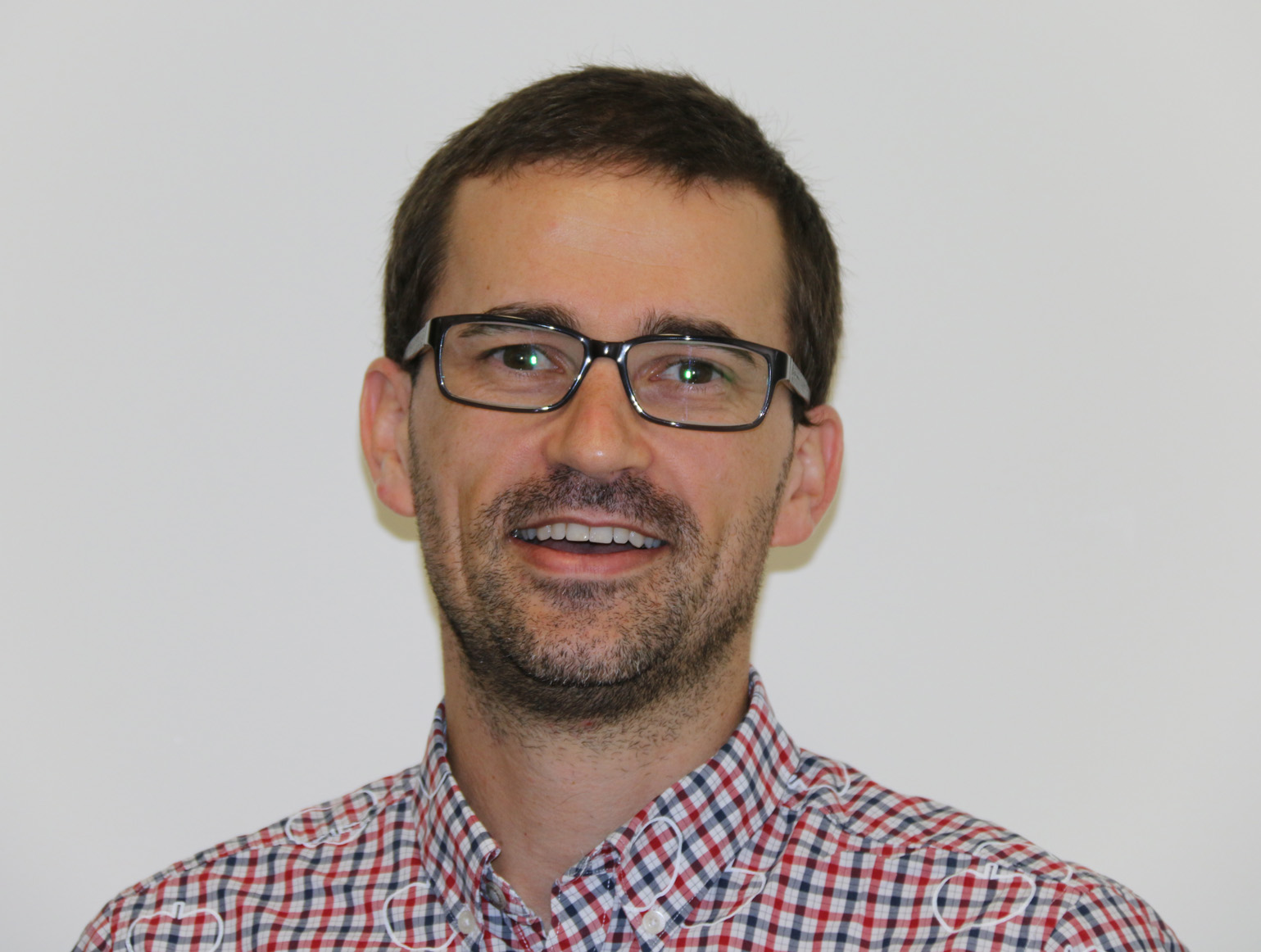
Donald joined the Commonwealth Scientific and Industrial Research Organisation, in 2005 and is based in the Agriculture and Food unit. Prior to that he worked at the University of Queensland, Australia, in mammalian genomics. His doctoral research at the University of Melbourne investigated the molecular genetics of toxin biosynthesis in fungal pathogens of both plants and animals.
Since joining CSIRO he has worked with Fusarium pathogens including F. oxysporum, F. pseudograminearum and F. graminearum. For the wheat infecting Fusaria, the groups applies comparative genomics, functional analyses including forward and reverse genetics and biochemical analyses to understand how this group of pathogens is so successful against these important crops. Through these approaches the groups work has uncovered the importance of a pathogens ability to overcome host derived defence compounds. In some cases the ability of pathogens to overcome these defence compounds have been acquired via horizontal gene transfer including across biological kingdom boundaries from bacteria and signatures of these transfer events are evident in the genomes of these pathogens. His team also has a strong interest in understanding how toxins and secondary metabolites in general are synthesised and regulated by these pathogens.
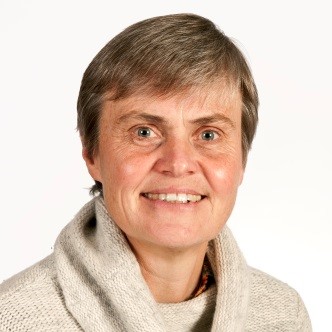
Over 30 years experience in molecular plant pathology and molecular genetics investigating fungal and viral pathogens of wheat, barley, tomato, potato, oilseed rape and arabidopsis. Since 1998 actively engaged in the analysis of newly sequenced fungal pathogen genomes. Main research interests – understanding plant disease resistance mechanisms and pathogen virulence strategies; developing novel approaches to investigate the function of different types of fungal effectors. Her team is currently focusing on the interactions between wheat and the fungi Fusarium graminearum, Fusarium culmorum, Zymoseptoria tritici and Gaeumanomyces tritici. She is the author of over 140 refereed papers in international journals. Co-founder in 2005 of the PHI-base (www.phi-base.org) which is a knowledge database now accessed by researchers in over 125 countries. Current positions – Deputy Head of the Department of Biointeactions and Crop Protection at the Institute Rothamsrted Research in the UK, Assocate Editor – Plant Physiology, ELIXIR UK node member.
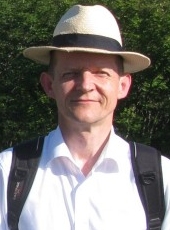
Petr Karlovsky is professor and head of Molecular Phytopathology and Mycotoxin Research Section at the University of Göttingen in Germany. His lab studies secondary metabolites in interactions of fungi with other fungi, plants and invertebrates, including mycotoxins and their enzymatic transformations. Research highlights include unraveling the biological function of mycotoxin zearalenone; discovering citramalic acid in plant root exudates and its function; elucidating secondary metabolites in the interaction between Brassica napus and Verticillium longisporum; untangling the role of fusaric acid and its detoxification in interaction between a mycoparasite and its prey; elucidating defense metabolites of Aspergillus nidulans targeting fungivores; and identification of volatile metabolites of plants that can serve as biomarkers of fungal infection.
Petr Karlovsky studied biochemistry and obtained his PhD in the Institute of Biophysics in Brno, Czech Republic. He worked as a postdoc at Gesellschaft für Strahlen- und Umweltforschung (GSF) and at the University of Göttingen in Germany before assuming position of a Research Manager at DuPont/Pioneer Hi-Bred in Des Moines (IA) and Wilmington (DE), USA. He was offered visiting professorship by universities in Egypt, Italy and India and accepted visiting professorship awards from the University of Connecticut in Storrs, USA, and Zhejiang University in Hangzhou, China.
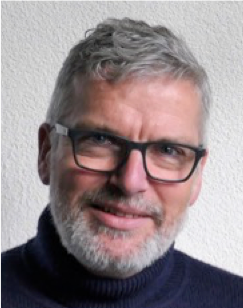
Gert Kema (1957) has 33 years of experience in plant pathology, host and pathogen genetics and genomics, specializing in foliar diseases of cereals and banana. Since 5 years major lead of international programs on Fusarium wilt in banana. Published over 100 peer reviewed scientific articles, holder of patents and international speaker. Interests are plant diseases (in the tropics) and their management, food security. He obtained a BSc degree in agronomy, a MSc in plant breeding. He obtained his PhD in 1996 on research into Zymoseptoria tritici, the septoria tritici blotch fungus of wheat, which is still ongoing. Currently he also holds a chair as professor of tropical plant pathology at Wageningen University, The Netherlands, with a focus on banana and the fungal pathogens Fusarium oxysporum f.sp. cubense and Pseudocercospora fijiensis. He is a co-founder of two companies in the field of bioprocessing and genetic engineering of banana.

Rudolf Krska is full professor for (Bio-)Analytics and Organic Trace Analysis at the University of Natural Resources and Life Sciences, Vienna (BOKU). He is head of the Center for Analytical Chemistry at the Department of Agrobiotechnology (IFA-Tulln) at BOKU with some 50 staff. From 2010-2015 Prof. Krska also served as head of the BOKU-department IFA-Tulln with more than 200 staff. He was also member of the Working Group Fusarium of the Scientific Panel on Contaminants of the European Food Safety Authority and worked for one year as A/Chief of Health Canada´s Food Research Division (2009/10) where he was responsible for the research on chemical contaminants in foods carried out within Health Canada´s National Food Chemical Safety Laboratory Network.
Prof. Rudolf Krska has received 10 scientific awards and is (co‑)author of more than 300 SCI publications (h-index: 52; citations in 2016: >1250). In 2015 and 2016, Thomson Reuters (Web of Science) identified Prof. Krska as one of the world’s most influential contemporary researchers due to his ranking among the top 1% most cited authors in the field of agricultural sciences. His current research interests are in the area of plant-fungi metabolomics, IR-spectroscopy and novel mass spectrometric methods for the determination of multiple mycotoxins including their conjugation and transformation products in food, feed and other biological matrices. As of March 2016, Prof. Krska acts as coordinator of the European Commission funded project MyToolBox (Safe Food and Feed through an Integrated ToolBox for Mycotoxin Management) with 23 partners (including 40% industry participation and 3 partners from China) and a funding volume of more than 6 Mio Euro. Since 2017, he is also Green Area Leader at the Austrian Competence Centre for Feed and Food Quality, Safety and Innovation (FFOQSI) with 18 company partners and a project volume of >5 Mio Euro.

Dr. Ajjamada C. Kushalappa, is a professor at McGill University, Quebec, Canada. Current focus of his research is on the identification of resistance genes in plants against biotic stress based on comprehensive transcriptomics and semi-comprehensive metabolomics, and use of these genes/gene segments to replace those that are polymorphic in commercial cultivars based on genome editing using CRISPR-Cas9 system. His team has identified several R-genes in wheat against fusarium head blight and in potato against late blight. The mechanism of resistance is mainly due to resistance related metabolites, polymers and conjugates, that are deposited to reinforce the cell wall, thus containing the pathogen to initial infection. These metabolite biosynthetic genes are regulated by a hierarchy of genes, such as transcription factors, MAP kinases and receptors, following pathogen invasion. He was an invited speaker at several national and international conferences. He has published more than 100 papers and was awarded Dr. and Mrs. Bailey award, by the Canadian Phytopathological Society, for an exceptional and distinguished contribution to plant pathology.

Dr. Antonio F. Logrieco, Director of Institute of Sciences of Food Production, National Research Council of Italy (http://www.ispacnr.it/). Scientific responsible and coordinator of various national and international projects dealing on Plant pathology and food safety,with particular attention on mycotoxin problem including the COST action 835 “Agriculturally important toxigenic fungi”; DeTox-Fungi-1999-01380 in the FP V; WP3“Microsystems Technology solutions for rapid detection of toxigenic fungi and mycotoxins in Good Food FP6-IST-1-508774-IP in FP VI; “Novel integrated strategies for worldwide mycotoxin reduction in food and feed chains”-MycoRed-KBBE-2007-2-5-05 in FP VII; MycoKey; “Integrated and innovative key action for mycotoxin management in the food and feed chain) –MycoKey Horizon 2020 (http://www.mycokey.eu/ ). In addition he participated in the following EU projects: Wine-Ochra Risk-2000-01761; Ramfic-1999-00284; RAFBCA-2000 01391; Myco-globe-7174.
He is the founder of the Agro-Food Microbial Culture Collection "ITEM" (http://server.ispa.cnr.it/ITEM/Collection/). He is the co-founder and former Past-President of International Society for Mycotoxicology (http://www.mycotox-society.org) and acting President of Mediterranean Phytopathological Union. He was President of ISPP “Fusarium Committee”.
Elected as member of Hungarian Academy of Sciences and nominated as Distinguished International Supervisor of Institute of Food Science and Technology, Chinese Academy of Agricultural Sciences. He was member of organizing committee and invited speaker in international conferences and referee and editor of various books and international journals.
He has strong record of publication and papers on international journal (200) and co-editor of 12 books on mycology, molecular/bio-chemical characterization of active secondary metabolites (mainly phyto- mycotoxins) of plant pathogens as well as relevant experties in fungal genetic and fermentation technology.
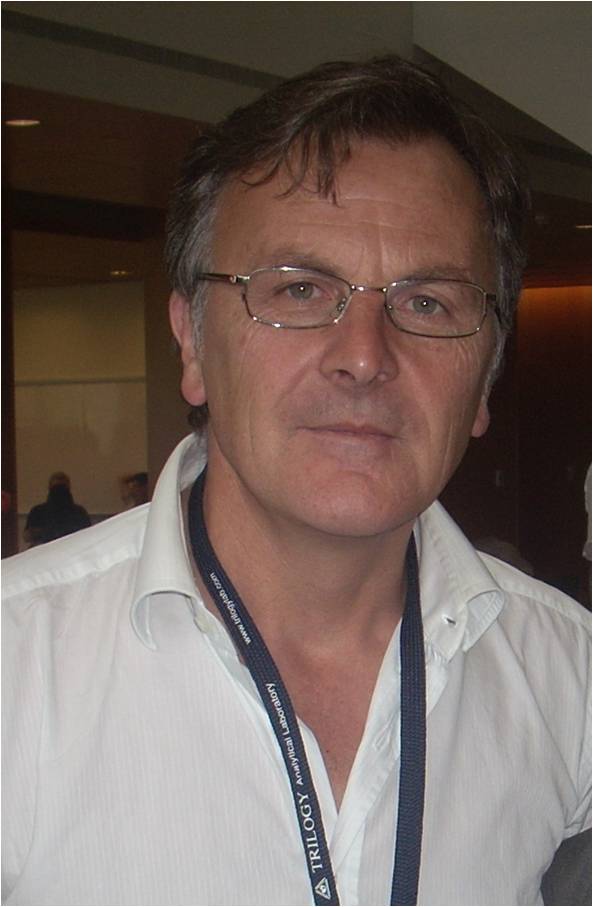
Researcher at the Istituto tossine e micotossine da parassiti vegetali (ITEM, since 2001 Institute of Sciences of Food Production, ISPA), National Council of Research (CNR), since 1989. Senior Researcher at ISPA-CNR since 2007. He is/has been responsible of several National and International projects on Toxigenic fungi. The area of work are Plant Pathology, Mycology, Mycotoxicology and Fungal genetics with main field of interest in the identification, genetic and toxinogenic characterization of main Fusarium and Aspergillus species, pathogens of agriculturally important crops and the study of their diversity and pathogenicity. He has been responsible for ISPA of several National and European projects on the toxinogenic fungi. He is now Leader of the Work Package 8 “Communication, Dissemination & Exploitation” of the Horizon 2020 UE Project 678781 Integrated and innovative key actions for mycotoxin management in the food and feed chain “MycoKey”. Research activity of Dr. Moretti is well documented by several papers on International Journals and book chapters ISI and hundreds of abstract and proceedings of National and International scientific meetings. H-index of Antonio Moretti: 31 (ISI Web of Science) and 37 (Scopus).
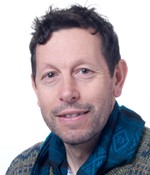
Paul Nicholson leads a group within the Crop Genetics Department of the John Innes Centre. Many years ago, he began working on facultative pathogens involved in disease complexes of the stem base and heads of cereals. His initial work focussed on developing tools to dissect the components of complexes and determine the relative amounts of each species to study the effect of host resistances and/or agronomic practices on individual pathogen species. His group then turned its attention to investigating disease resistance using both crop and model plant species with a focus on FHB. This included studying the role of phytohormone signalling pathways on resistance and potential trade-off between resistance to different diseases and between disease resistance and agronomic traits. This highlighted the importance of host functions in conferring susceptibility to Fusarium pathogens. His group is currently attempting to identify genes associated with resistance and/or susceptibility in order to optimise FHB resistance in wheat.

Senior reseach scientsit and deputy head of the INRA-Research Center in Food Toxicology, Toxalim in Toulouse, France.
During the last 20 years she analysed the mechanism involved in the toxicity of mycotoxins, especially Aflatoxins, Fumonisins and Deoxynivalenol. Her work especilly focussed on the effect of mycotoxin on the intestinal and immune responses. Recently her work focussed on the effect of mycotoxin mixtures.
Dr. Oswald has more than 100 peer-reviewed international publications. She is an expert for the European Food Safety agency and for the French Agency for Food, Environmental and Occupational Health & Safety.
She is currently leading a research team with 6 scientists, 4 technicians and 9 doctoral and post-doctoral fellows. This team has two main goals (1) to determine the toxic effects of mycotoxins using both in vitro, ex vivo and in vivo models, (2) to characterize the production of mycotoxins and other secondary metabolites by fungal species.
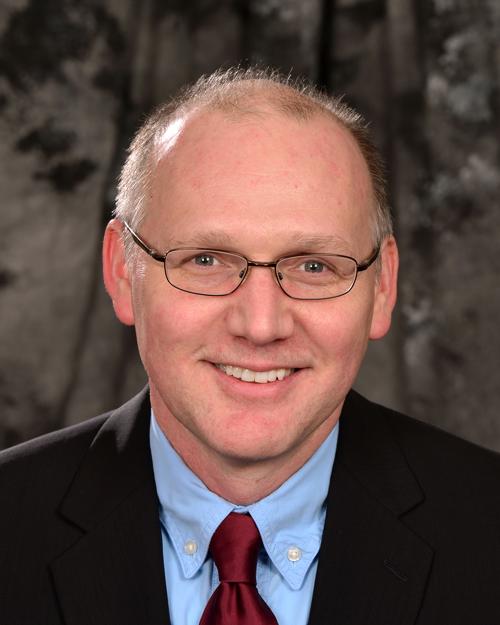
Robert (Bob) Proctor is a microbiologist at the United States Department of Agriculture research institute in Peoria, Illinois. He received a bachelor’s degree in Biology from the University of Victoria in British Columbia, Canada, and graduate degrees in Plant Pathology from the University of Wisconsin in Madison. After graduate school he moved to the USDA where he began work to elucidate the genetic and biochemical pathways that lead to the formation of mycotoxins in Penicillium and Fusarium. At the USDA he has also studied the roles that mycotoxins play in the ecology of fungi that produce them, and on other biological processes that contribute to the ecological fitness of Fusarium. The results of his collaborative research with chemists and other biologists at the USDA as well as other institutions has provided insights into the genetic bases of variation in mycotoxin production in fungi. More recent work on the genomics and evolution of mycotoxin biosynthesis has unraveled some of the genetic mechanisms that have contributed to the current distribution of mycotoxin production among and within Fusarium species. This work has also provided insight in to the evolutionary processes that have contributed to the structural diversity of mycotoxins produced by Fusarium and other fungi.
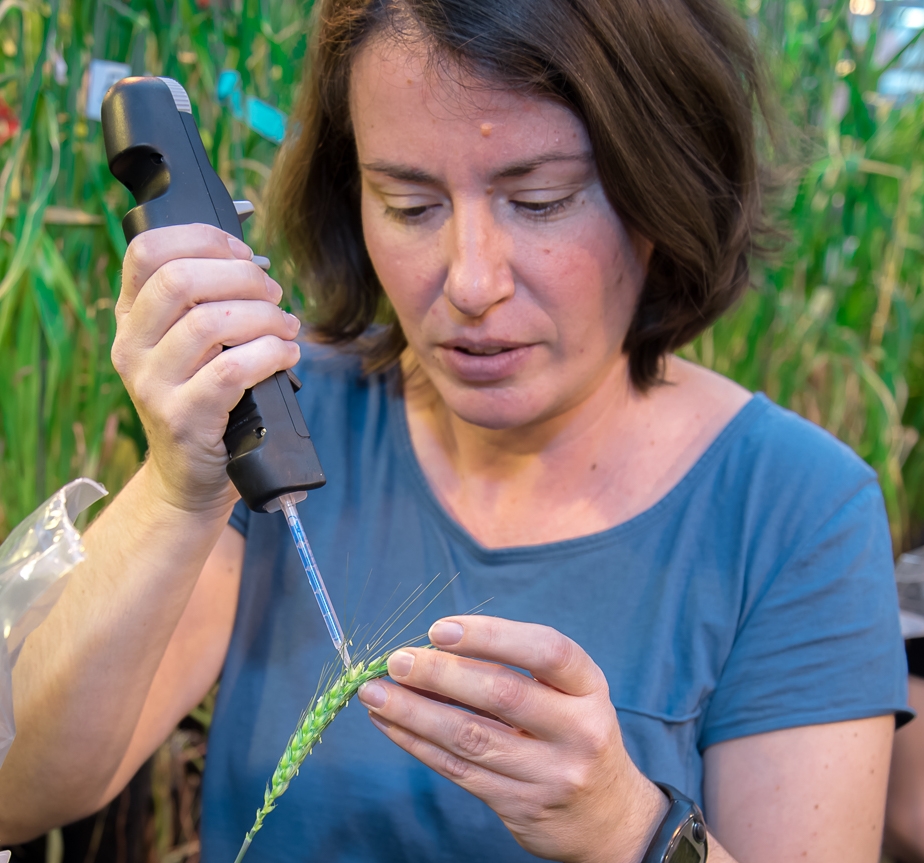
Barbara Steiner is senior scientist in the group of Prof. Hermann Buerstmayr at the BOKU-University of Natural Resources and Life Sciences, Vienna, where she also received a Ph.D. degree in plant breeding. Her research focuses on genetics and genomics of cereal crops and the major disease Fusarium head blight. Thereby the genetic analysis of the quantitative resistance, high-resolution mapping of the resistance loci and resistance gene isolation are main research tasks. She established mutant screens for forward and reverse genetic approaches and phenotyping methods for high-throughput Fusarium and mycotoxin resistance testing. As a plant breeder she is particularly interested in breeding bread wheat and durum wheat for increased Fusarium head blight resistance including germplasm evaluations, characterization and utilization of genetic resources, pre-breeding and the development of methods and tools for genomics-assisted breeding.
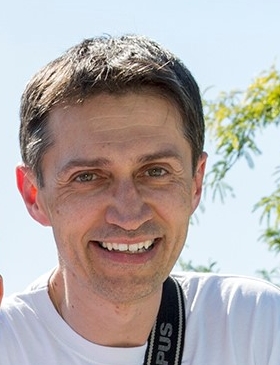
Michele obtained his Analytical Chemistry Degree, Summa Cum Laude, at University of Ferrara in 1997. He won the National Prize for Young Researchers promoted by the Italian Chemistry Federation (Federchimica) in 1998.
Then he took a master's degree in 1998 (Master in Science, Technology and Management from University of Ferrara, working at the same time at the "Natta Research Center" of Shell-Montell Polyolefins) and a doctorate in 2005 (PhD in Science and Technology of Innovative Materials from University of Parma), landing the role of Food Chemistry & Safety Research Manager in Barilla Spa company in 2003. Here he has been working in an international contest with public and private research centers\organizations on research projects within the field of food chemistry, food safety-quality-authenticity, food contact materials, sensing and mass spectrometry applications for food products.
He is member of working groups in European Committee for Standardization (CEN) and Vice-Chair of the ILSI Process Related Compounds & Natural Toxins Task Force; Leader in the Food Safety Section of Italian National Cluster Agrifood, member of the Board of Mass Spectrometry Division – Italian Chemistry Society; editorial boards of important peer-reviewed journals (World Mycotoxin Journal, Food Additives and Contaminants,…).
He has been involved in various National/European Funded Projects and presently he is WP Leader in the EU-FP7 FoodIntegrity Project and in the EU-H2020 MyToolBox projects.
He has developed experience in academic teaching activities, masters\PhD projects supervision, coordination/chairmanship of international conferences (Recent Advances in Food Analysis, World Mycotoxins Forum, FoodIntegrity, MS Food Day, Rapid Methods Europe,…).
His scientific production is documented by five book chapters, 115 contributions at national and international conferences and 70 papers in international ISI journals.
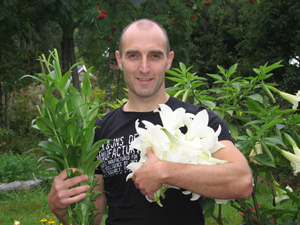
Silvio Uhlig is senior researcher at the Norwegian Veterinary Institute (NVI) and head of the Chemistry Section. He received his degree in chemistry from the University of Oslo and studied metabolites of Fusarium avenaceum for his PhD. He is a toxin chemist and is presently involved in projects dealing with the chemistry of toxins from fungi, plants, marine algae and cyanobacteria. His contribution to these projects is in the development of analytical methods; isolation, purification and structure determination of new metabolites or biotransformation products; bioassay-guided fraction as well as reactivity testing and derivatisation.
Silvio is also a member of the Toxinology Research Group at the NVI, which focuses on toxinology in a one-health perspective. The research group studies the biosynthesis, biological effects and toxicokinetics of various toxins, among them toxins from Fusarium, Aspergillus, Penicillium and Claviceps.

Joseph-Alexander Verreet received a diploma degree from the University of Bonn and a Ph.D. degree in agricultural sciences from the Technical University of Munich, where he also acquired his habilitation in plant pathology. Now he is full professor of plant pathology at the University of Kiel, where he still serves as the head of the Department of Phytopathology. In his research, he developed integrated pest management (IPM) models for major crops by analyzing several multi-year supra-regional case studies on epidemic and damage dynamics and extrapolating functional control thresholds. According to the IPM threshold approach, chemical crop protection measures are ideally applied in the epidemiologically sensitive stage of the pathogen at a reduced application rate (transition from accrescence to progression phase). He published models for IPM of wheat, barley, and sugar beet diseases. The sugar beet IPM model is employed across Europe for the control of beet leaf diseases. The models are aimed at optimizing pesticide use by preferentially using cultural controls, including sanitation practices. According to his scientific view, the key for solutions to problems concerning contagious diseases lies in the biology of the pathogens, their physiological abilities, their behavior in the field, and their population dynamics as affected by cultivation and environment. The multi-year collection of biological and meteorological data has now led to the derivation of functional prognosis models in wheat (IPM Model). For example, the prediction accuracy for leaf blotch is 93%, for brown rust and powdery mildew 80%. The multiple regression model for FHB predicts the expected wheat grain contents of DON and ZEA at flowering with an accuracy of 78 to 80%. In addition, the model can be used to carry out a Fusarium-specific treatment with fungicides at flowering in case of a prognosticated severe Fusarium epidemic with simultaneously high levels of DON and ZEA.